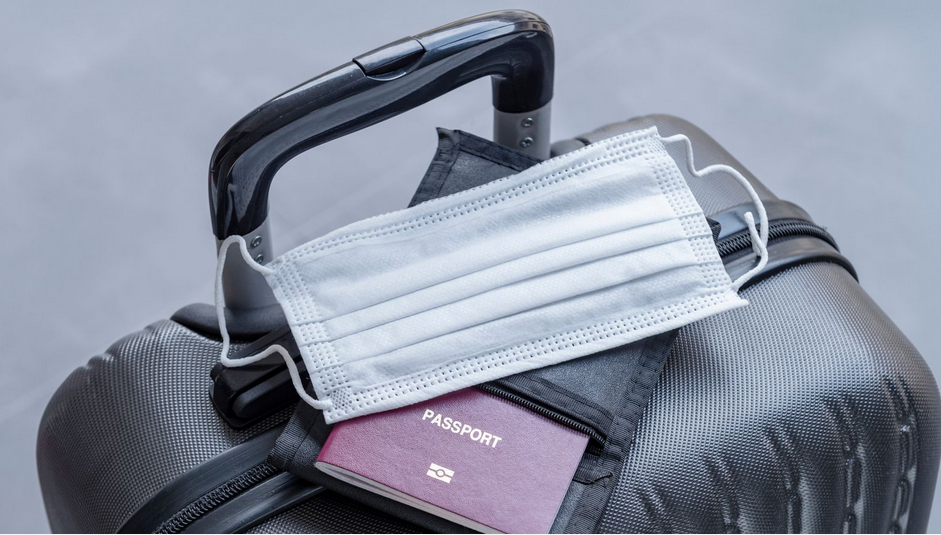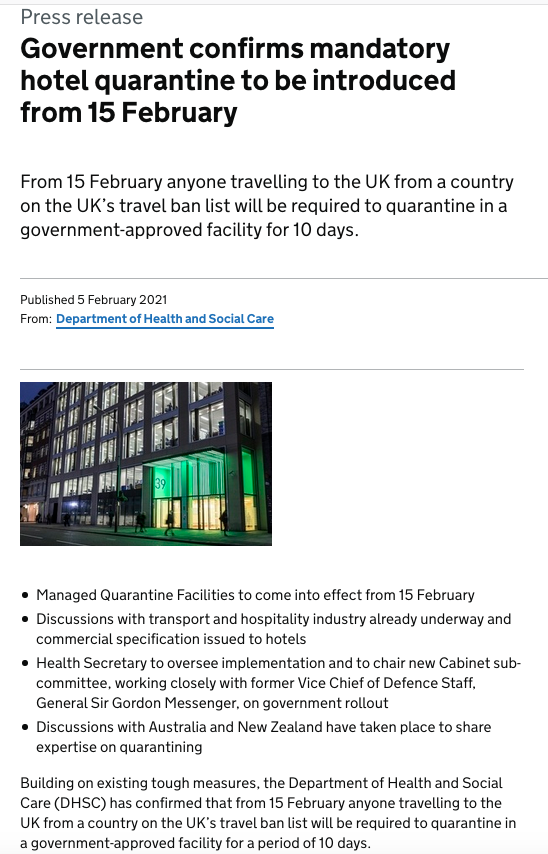Yesterday the Transport Minister Grant Shapps sounded an ominous note when he cautioned listeners to Radio 4’s Today programme: “Please don’t go ahead and book holidays. I simply don’t know the answer to the question of where we’ll be up to this summer. It’s too early to give that information. The best advice to people is: do nothing at this stage.”

And on Tuesday, Jonathan Van-Tam, England’s deputy chief medical officer, cautioned: “The more elaborate your plans are for summer holidays, in terms of crossing borders, in terms of household mixing, given where we are now, I think we just have to say the more you are stepping into making guesses about the unknown at this point.”
Meanwhile, Prime Minister Boris Johnson — after previously urging a libertarian approach that famously involved visiting Covid wards and shaking hands with everyone — has finally come around to in fact shutting down borders. “They are most effective, border controls, when you’ve got the rate of infection down in your country. For border controls really to make that final difference, so you can isolate new variants as they come in, you need to have infections really much lower so you can track them as they spread.”
And of course, to track anything effectively, you’d need a track-and-trace protocol that actually worked and didn’t have Dido Harding in charge of it.

This all comes as the government, a full 11 months into this crisis, is finally locking (some of) the borders to arriving passengers from some 33 countries, banning non-British arrivals entirely and enforcing compulsory quarantine stays of ten days, that will be charged to passengers at a cost of £1,750 per person, for British passengers. This list is not final: more countries are under consideration, including such European neighbours as Spain, the Netherlands, Switzerland, Germany, Italy and France, as well as Canada and other countries in Africa, joining the existing list that already stretches from South Africa to Portugal and South America.
Prison sentences of up to 10 years are being threatened for those who lie about visiting a “red list” country. Everything is in a state of flux and there is no certainty about anything. George Eustice, environment secretary, told Times Radio, “We are constantly looking at refining our approach to the border simply because there is a risk from new variants coming from other countries around the world.”
As Oliver Smith wrote in the Daily Telegraph online on Tuesday,
“The vaccine was supposed to herald a return to the wonderful old normal. When it comes to travel, the opposite seems to be happening. Our government is in the process of fencing us in.”
He also wrote, “All sensible scientists concede that the virus will be with us forever, and it will keep mutating. So to shut our borders over the hypothetical emergence of a vaccine-busting variant could mean we’ll never travel freely again. If this is the motivation for introducing restrictions, under what criteria can they be lifted? Once the vulnerable are vaccinated and lockdown is lifted, the only acceptable travel restriction – for that extra safety net – should be testing. If the vaccine needs tweaking, then we tweak the vaccine, but we cannot keep living in fear.”
This is obviously going to affect every aspect of our lives for the foreseeable future, from travel, as noted above, to dating: in a feature in The Independent on pandemic sex, published on February 3, Natasha Preskey spoke to some singletons, like a University student called Grace who lives with her clinically vulnerable mother and hasn’t had sex in a nearly a year, whom she reports “has noticed a change of tone on the dating apps as it’s become clearer and clearer that Covid will be with us for some time. ‘It’s like everyone almost can’t be bothered anymore, because we’re not seeing an end to it. Obviously, there are people that are breaking lockdown rules and meeting up anyway, but I’m not up for that’.”

And in the Telegraph online on Monday, Marianka Swain wrote, “We may not have a Glastonbury in 2021, but many other live arts festivals and events are in the early planning stages, encouraged by the efficient vaccine rollout. To date, more than 12 million people in the UK have received their first dose, with ministers confident that more than 30 million of the most vulnerable will be immunised within three months.”
But she went on:
“So, it’s extremely dispiriting – nay alarming – to hear a flip comment from Tim Spector, a professor of genetic epidemiology at King’s College London, on Times Radio that restrictions on large gatherings are likely to be in place for ‘the next few years’.” She points out that the Culture Recovery Fund was “specifically designed to tide the arts sector over until it could return at full strength. That means full audiences. It’s not enough for the Government to allow venues to reopen – they need to lift social distancing restrictions too.
If Prof Spector’s offhand remark is actually applied to policy, however, we would be looking at a significant delay to a full return to normal, and the sector would need significant new support measures in place. Otherwise, all of the investment so far in keeping venues and companies afloat will be for nothing. If capacity restrictions stay in place indefinitely, they simply can’t turn a profit.
It would also seriously damage audience confidence in returning to live events. There will likely be a gradual transition back to mixing in big crowds – more of a psychological barrier than a safety issue, once the vaccine rollout has been completed. An overabundance of caution would be patently unhelpful to that effort, and would prevent a previously booming industry from getting back on track.”
So much for the vaccine providing light at the end of the tunnel. The government appears determined, having dug themselves into a hole with their incompetent handling of the crisis from the very beginning, to want to keep digging, making the end of the tunnel recede ever further into the distance.
Of course, with a fast-mutating virus on their hands, no one expects anyone to be able to predict the future with any kind of certainty; and after the previous disastrous Eat Out to Help Out campaign to reignite the restaurant economy but which mainly helped to seed the second wave that led to another lockdown, I’m not surprised that Boris Johnson or his leading cabinet cohorts want to be making foolish promises that they may then have to break, as Johnson himself was forced to do over the negated promise of a socially-mixed Christmas Covid holiday (as if the virus was expected to honour the seasonal time of year and suspend its deadly rampage through communities across the country).
So there’s no saying where theatres will be by the time summer arrives. For myself, I’m expecting that there may be a flurry of outdoor theatre activity this year, albeit one that requires the enforcement of social distancing rules. But I seriously doubt we’ll be back inside theatres this summer, or even autumn.
It won’t be until the vaccine programme has been fully and successfully rolled out throughout the nation, and any necessary tweaks established for mutant strains, that there may be enough confidence to begin to even think about going indoors again to sit amongst strangers.
